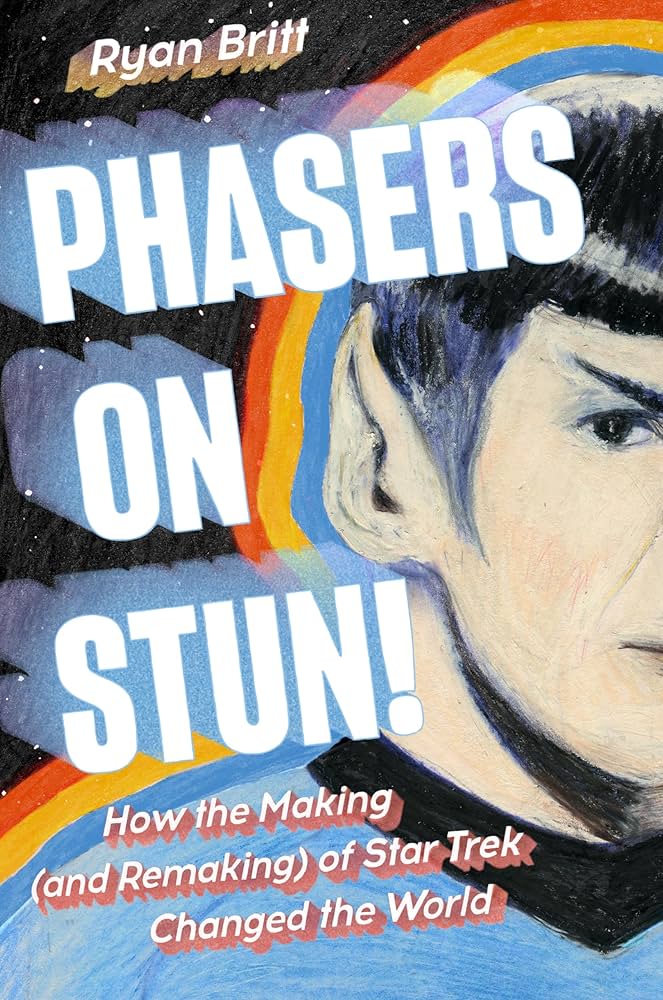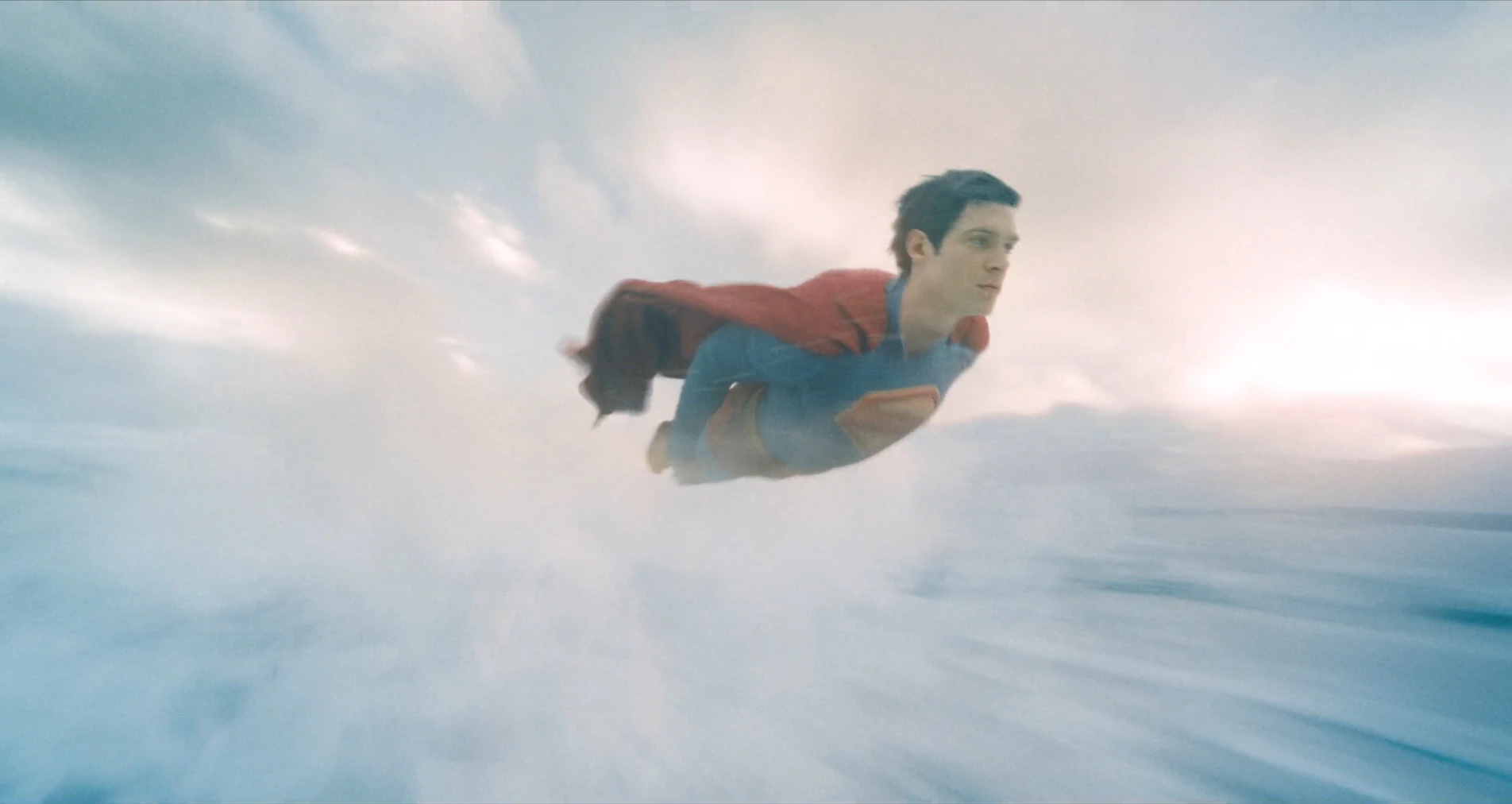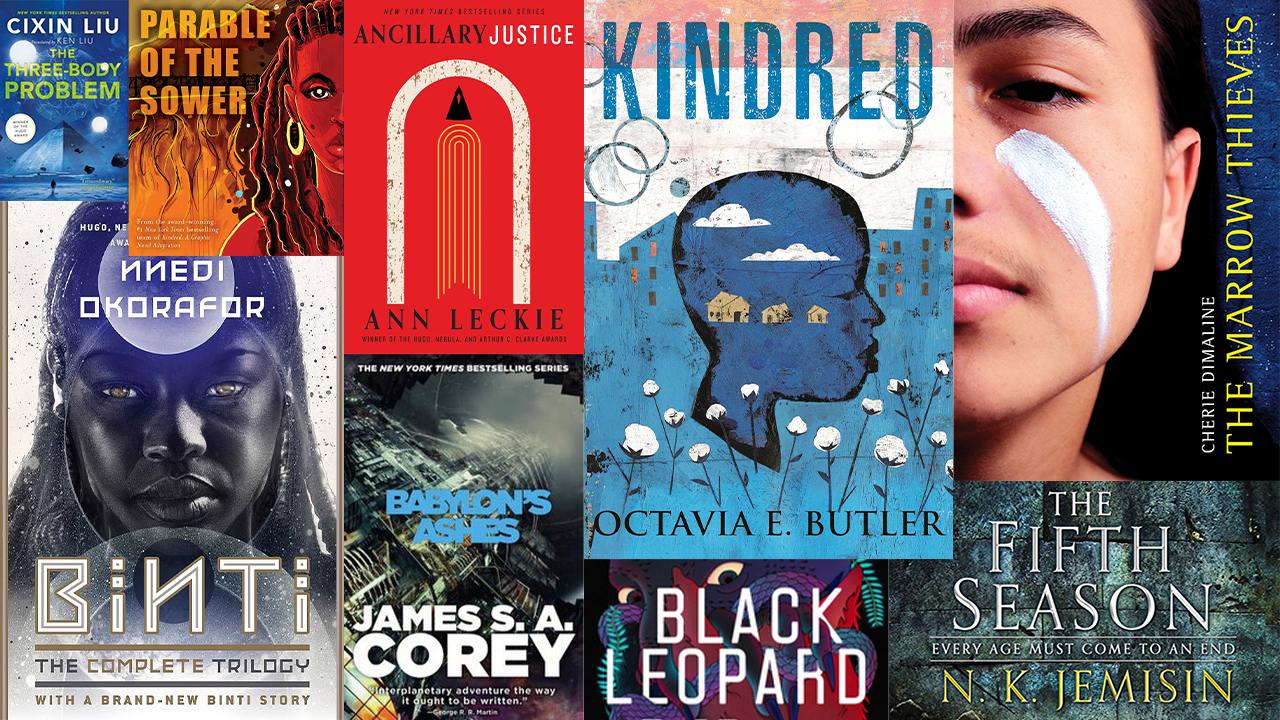The New Who: The Last Battle
May 7, 2020
Doctor Who, “The Battle of Ranskoor Av Kolos”
Series 11, Episode 10
Written by Chris Chibnall
Directed by Jamie Childs
Starring Jodie Whittaker, Tosin Cole, Mandip Gill, and Bradley Walsh
Guest Starring Mark Addy, Percelle Ascott, Phyllis Logan, and Samuel Oatley
Original Broadcast 9 December 2018 (49 minutes)

Doctor Who’s Series 11—despite the protestations of social media’s insufferable naysayers, haters, and scolds—is not merely good, but excellent. Chris Chibnall’s initial season as showrunner casts Jodie Whittaker as the first woman to play the protagonist and recalls many previous Who eras while blazing paths forward into new territory. Whittaker’s Thirteenth Doctor is, simply, a triumph. Coming after Peter Capaldi’s dour, irascible, and loveable Twelfth Doctor, Whittaker has huge boots to fill following in the footsteps of all the talented actors (including John Hurt) who preceded Capaldi. That Whittaker performs magnificently is manifest in every Series 11 installment, but perhaps no episode demonstrates her talents better than the finale, the Chibnall-authored “The Battle of Ranskoor Av Kolos.”
If that title sounds strange, the story it fronts—like the best Doctor Who outings—is positively loopy. A short prologue shows two never-before-seen characters, Andinio (Phyllis Logan) and Delph (Percelle Ascott), standing near a lake on the planet Ranskoor Av Kolos in the year 2018. Andinio trains Delph to use the remarkable psychokinetic powers that typify the Ux, a “duo-species” in which only two members exist at any one time and who base their religious faith on the belief that their Creator will one day return to help them use their powers for the common good. Andinio instructs Delph how to harness telekinesis to raise rocks and boulders into the air, where they begin agglomerating into an airborne structure. Yet this training is interrupted by a figure who begins materializing inside a ball of crackling electricity.
The story then jumps 3,407 years into the future, just as the TARDIS receives nine simultaneous distress signals from Ranskoor Av Kolos. The Doctor, noting that no other spacefaring travelers have answered, decides to respond despite the fact that the planet itself is “transmitting violent psychotropic waves throughout its atmosphere” that, the Doctor says, “mess with your brain, distort reality, change moods to the extreme.” She equips companions Ryan Sinclair (Tosin Cole), Yasmin “Yaz” Khan (Mandip Gill), and Graham O’Brien (Bradley Walsh) with “neural balancers” to shield them from the worst psychological effects. The TARDIS materializes inside a spacecraft commanded by Greston Paltraki (Mark Addy), who, in a superb reveal, steps out of the shadows pointing a gun directly at the Doctor’s head. Paltraki, nearly out of his mind with fear (thanks to those same psychotropic waves), forgets everything he says within minutes. After the Doctor persuades him to wear a neural balancer, Paltraki then remembers that three crew members under his supervision have been captured while trying to complete their mission on behalf of the “Congress of the Nine Planets”: Stop the unnamed atrocities committed by whomever controls Ranskoor Av Kolos.
When Andinio, who has not aged a day in 3,407 years, contacts Paltraki on behalf of “the Creator,” Team TARDIS hears the voice of T’zim-Sha (Samuel Oatley), the Stenza warrior the Doctor seemingly vanquished in Series 11’s premiere episode, “The Woman Who Fell to Earth.” Tim Shaw, as the Doctor mockingly calls him, is also responsible for the death of Grace Sinclair-O’Brien (Sharon D. Clarke), which raises this outing’s emotional stakes in ways rarely seen during the Thirteenth Doctor’s onscreen tenure. The Doctor vows to retrieve Paltraki’s captive crew members and to stop Shaw from harming anyone else, but is nonetheless astonished by the destruction she and her mates observe after beaming to Ranskoor Av Kolos’s surface. The smashed hulls of eight other spacecraft dot the landscape near the lake seen in this outing’s opening scene, while a massive stone structure called the Edifice hangs above all this debris.
For those following along, “The Battle of Ranskoor Av Kolos” has already packed in enough plot for three or four episodes of almost any other television series. And if you are confused, fret not: Chibnall’s script sets such a frenetic pace that no one could blame you, least of all the Doctor and her companions, who cannot understand how Tim Shaw has not only survived but also somehow pressed the Ux into service to help keep him—near death when he first arrived on Ranskoor Av Kolos (thanks to his earlier confrontation with the Doctor)—alive. Shaw’s presence brings out the worst in the affable Graham, who vows to kill Shaw in revenge for Grace’s death, prompting a terrifically acted scene between Graham and the Doctor, who tells Graham that murder is no solution and that if he manages to kill Shaw, he (Graham) can no longer travel in the TARDIS. Bradley Walsh has played Graham with such warmth, humor, and good cheer during Series 11’s previous nine adventures that seeing the character both angry and resolute in his determination to finish off Shaw is disturbing, so much so that his step-grandson Ryan begins shadowing Graham to ensure that he does not commit an act that he will later regret.
And even these developments do not exhaust this episode’s eventful storyline, since the Doctor realizes that T’zim-Sha has slaughtered the populations of five different planets by using the Ux’s godlike powers to “compress” their worlds into crystalline cages the size of basketballs. Committing genocide on such a scale reminds careful viewers of the Doctor’s behavior during the Time War, that final conflict between the Doctor’s species, the planet Gallifrey’s Time Lords, and their perpetual enemy, the planet Skaro’s Daleks, that Russell T. Davies engineered to give Doctor Who emotional heft when he resurrected the program in 2005. Throughout Series 1, Christopher Eccleston’s Ninth Doctor bears the scars of massacring—or thinking he has massacred—every other Time Lord and Dalek at the Time War’s conclusion to prevent them from destroying all creation. Committing double genocide gives New Who’s inaugural season a tragic resonance that Eccleston plays flawlessly throughout its thirteen episodes and that Chris Chibnall evokes intermittently during Series 11’s earlier outings. Despite the Thirteenth Doctor’s effervescent personality, Jodie Whittaker’s acting talents most fully express themselves in “The Battle of Ranskoor Av Kolos” when the Doctor recognizes how appalling is the scale of Tim Shaw’s crimes.
These moments are simultaneously impressive and fearsome, with the Thirteenth Doctor so offended by T’zim-Sha’s heartlessness that viewers must be forgiven if they thought—as I did—that she might reverse her stance on murdering the Stenza warrior and do the job herself. The Doctor instead sets about saving Earth when Tim Shaw targets it for compression as revenge for the Doctor interfering in his hunt during “The Woman Who Fell to Earth.” She also vows to release the five captive planets before they break out of their crystalline cages and destroy entire swathes of galactic space.
Even this synopsis fails to summarize everything that happens in “The Battle of Ranskoor Av Kolos” since Graham inevitably comes face to face with Tim Shaw. While the Doctor and Yaz try to free the five compressed planets, Ryan evacuates crewmembers from the eight crashed starships that Shaw has taken hostage (by placing them in stasis chambers) while Graham plants explosives to destroy the automated SniperBots that Shaw uses to guard the Edifice from intruders (and that Team TARDIS first encountered on the planet Desolation, during Series 11’s second episode, “The Ghost Monument”). When Graham tells Shaw, “My wife died because of you,” Shaw’s response is, merely, “Good.” Yet Graham does not murder his Stenza antagonist, but instead shoots Shaw in the foot and, with Ryan’s help, bundles him into a stasis chamber, leaving Shaw with these words: “So, as you’re contemplating eternity, keep one name on your mind: Grace.”
This scene is a coup for Tosin Cole and Bradley Walsh, while Samuel Oatley again plays T’zim-Sha as a ferocious-but-cowardly gasbag who wields power so carelessly that he deserves none of the sympathy, fear, and adulation that the Ux give him. I will leave you, dear reader, to determine whether or not Chris Chibnall casts Tim Shaw as the fictional version of any real person or makes a political statement here, but let us just say that, on these scores, I have my suspicions.
So much happens in “The Battle of Ranskoor Av Kolos”—and so much of it good—that we might simply lose ourselves in its fantastic amalgam of silly somberness. Chibnall, for much of this entry’s running time, shows himself to be a commendable successor to Russell T. Davies and Steven Moffat. Placing the world’s oldest televised time-travel series into Chibnall’s hands has yielded tremendous boons during Series 11, but its finale—by trying to pull out all narrative stops in the best Russell T. Davies fashion—cannot equal the dizzying heights achieved by Davies’s four season-enders. Series 1’s two-part “Bad Wolf” and “The Parting of the Ways” remain signature contributions to Who lore, to science-fiction (and fantasy) television, and to popular art by giving the Ninth Doctor a stunning, near-perfect exit (and, to boot, establishing a template for the Doctor’s regeneration that every later incarnation has more or less followed). Series 2’s two-part “Army of Ghosts” and “Doomsday” are equally shattering in their emotional impact, with the Tenth Doctor (David Tennant) and his companion, Rose Tyler (Billie Piper), again finding themselves separated, not by regeneration, but by seeing Rose exiled to an entirely different, alternate universe.
Series 3’s three-part conclusion (comprising “Utopia,” “The Sound of Drums,” and “The Last of the Time Lords”) remains fantastic despite its dodgy, mystical denouement, in which the Tenth Doctor—reduced to a shriveled old husk by his heartless ancient nemesis, the Master (John Simm)—returns to health and vigor in a parable about the Second Coming that threatens to collapse into religious mumbo-jumbo, but that is saved by Davies’s unmatched ability to meld touching character moments, blinding narrative pace, and sophisticated mythic influences. And Series 4’s two-part finale (“The Stolen Earth” and “Journey’s End”) is, in a word, fabulous: a deliriously energetic romp that packs in so many allusions to previous Who moments while bringing back every notable companion from the Davies era that it functions as an unabashed, joyful continuity fest for Doctor Who’s longtime fans. No matter how many times people criticize “The Stolen Earth” and “Journey’s End” for defining the concept “over the top,” these outings utterly satisfy me every time I revisit them.
Chris Chibnall tries to replicate Davies’s madcap sensibility by going for broke in “The Battle of Ranskoor Av Kolos,” but doesn’t reach the perfect pitch that Davies achieves in his first and final season enders. This outing, like its predecessor “It Takes You Away,” should be at least two hours long, even if that extra running time risks the narrative excesses that Davies was accused of perpetrating in his day. Such extravagance, for me at least, remains preferable to the stolid, measured, playing-it-safe approach that too many television writers mistake for the artistic restraint they think wins them critical plaudits but that, too often, sucks the life straight out of their work. Doctor Who has never risked this particular danger, not in its entire 55-year history, so Chibnall upholds its best traditions even if “The Battle of Ranskoor Av Kolos” could be better.
The guest cast, especially Mark Addy as Poltraki, is excellent, while the production team is as spectacular as always. This episode features Segun Akinola’s best musical score so far, while director Jamie Childs holds together the disparate events, tones, and moods of Chibnall’s script to produce a gripping hour of television. Chibnall, in “The Battle of Ranskoor Av Kolos,” even returns to the planet-stealing premise that launch Davies’s “The Stolen Earth” and “Journey’s End”—in those entries, Earth and twenty-six other worlds are physically moved through space by the Daleks to form the engine of a “reality bomb” that will destroy everything in existence—by having T’zim-Sha capture and shrink five planets. “The Battle of Ranskoor Av Kolos” isn’t even the first time that Doctor Who has flirted with the concept of planet compression. In 1978’s four-part serial The Pirate Planet, the Fourth Doctor (Tom Baker) discovers a trophy room of small planets that figure into the plot of another extraterrestrial being, Xanxia (Rosalind Lloyd), who wishes to sustain herself almost to the point of immortality, just as T’zim-Sha hopes to do in Chibnall’s Series 11 finale.
So, all that is old may be new again, but “The Battle of Ranskoor Av Kolos” is effective despite its flaws (chief among them: Chibnall does not find time to resurrect Grace even if Ryan and Graham fully honor her memory by refusing to kill Tim Shaw) because the regular cast meets this episode’s acting challenges with the same expertise they have demonstrated all season long. Tosin Cole, Mandip Gill, and Bradley Walsh affirm how wise Chibnall and company were to cast them in their roles, but, with this episode, Jodie Whittaker stamps the protagonist with that unique combination of wit, passion, empathy, and necessary anger that makes the Thirteenth Doctor such a welcome part of the franchise. Whittaker and her Doctor are brilliant additions to Doctor Who, so when she closes Series 11 by telling Andinio and Delph, “None of us know for sure what’s out there. That’s why we keep looking. Keep your faith. Travel hopefully. The universe’ll surprise you constantly,” we can only cheer. Chibnall ends his inaugural season as showrunner with inspiring words that capture Doctor Who’s essential optimism and cosmic goodness. Friends, my advice is to watch “The Battle of Ranskoor Av Kolos” and Series 11 in the same spirit.
You will be glad you did.






